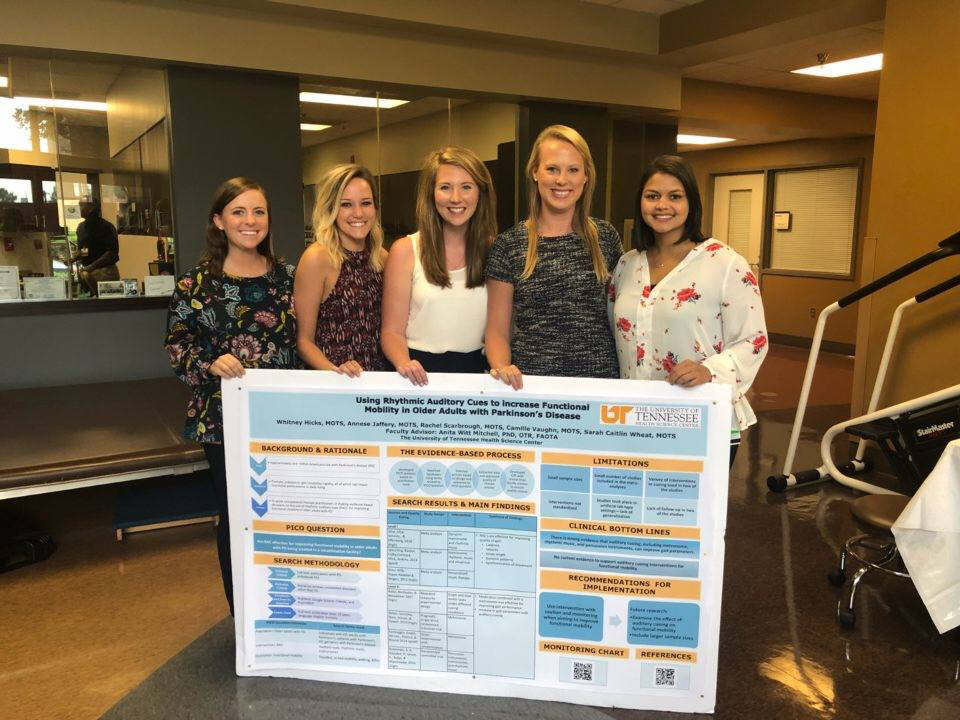
Master of Occupational Therapy Student Critically Appraised Topics
Faculty Advisor
Anita Witt Mitchell, PhD, OTR, FAOTA
Community Practitioner
Jennifer Clone, OTR/L
DOI
http://dx.doi.org/10.21007/chp.mot2.2020.0002
Document Type
Poster
Publication Date
Spring 5-18-2020
Abstract
Clinical Scenario: Dual-tasking combines both physical and cognitive components into one therapeutic intervention. There has been limited research on the benefits of dual tasking in relation to fall risks in adults with brain injury. Currently, it is common for various therapy interventions to spend the majority of time targeting physical or cognitive components, but not both at once. After appraisal, a total of five articles were used. These included two level I studies involving a high-quality randomized control trial and a meta-analysis, two level II studies that were both small-scale randomized control trials, and one level IV study that was a case study. The clinical bottom lines provided stated that strong evidence suggests that dual-tasking decreases fall risks in adults with brain injury, effective interventions ranged from 3 times per week for 60 minutes over 8 weeks to 7 times per week for 15 minutes over 1 week, and for adults with brain injuries, there is potential for carryover into everyday life after dual-tasking activities. The recommendations for implementation stated that further research is needed to determine the effectiveness of dual-tasking for reducing fall risks and close monitoring of the effects of dual-tasking during intervention is recommended.
Recommended Citation
Campbell, Kaley; Casey, Anayston; Culpepper, Madison; Denton, Elizabeth; and Morgan, Katie , "The Effects of Dual-Tasking on Fall Risks in Adults with Brain Injury" (2020). Master of Occupational Therapy Student Critically Appraised Topics. Paper 2. http://dx.doi.org/http://dx.doi.org/10.21007/chp.mot2.2020.0002.
https://dc.uthsc.edu/mot2/2
Project Portfolio


Comments
The accompanying presentation for this poster can be viewed at:
The Effects of Dual-Tasking on Fall Risks in Adults with Brain Injury